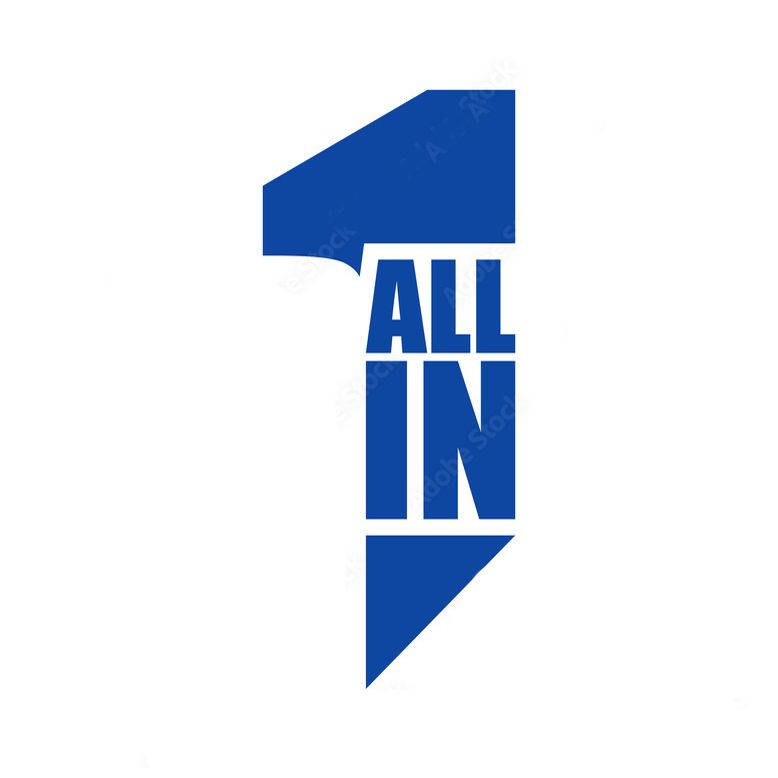
The other day I came across an interesting clip of a marathon runner who said that those who are disciplined are the ones who are truly free. What could that mean? Surely being disciplined means leading a rather regimented lifestyle, with lots of restrictions on what you can and can't do. That's true but it also means you are free from becoming lazy, free from wasting time, and free from procrastination. That's the freedom that discipline gives you.
I think the same is true when you go "all in". But before we discuss why and how this is so, let's first explore what "all in" actually means, in the context of sport.
Some people might think "all in" means training full-time. So, if you're all-in, it means you are training twice or even three times a day, right? But what if you can train only once a day? Or maybe there are times when you have to skip some days. Does that mean you're not all-in?
As far as I'm concerned, all-in is not about how many days you train or how many sessions you can attend. Yes, a person who is all-in will want to train a lot. And I mean a lot. But sometimes circumstances make daily training impractical. A person who is caught in such a situation could still very much be all-in.
Why? Because "all-in" is a mindset. It's a mindset that I will do everything I can to improve myself in my chosen field of endeavor. There may be certain obligations that I have to attend to, which will affect how much I get to train, but whatever time is available for me to train, I will take it.
A player who is all-in can ask themself at the end of each day: "Was there anything more I could have done?" and the answer will always be, "No".
Now, back to our original question: How can someone who is all-in be said to be free? Aren't they training all the time? What kind of freedom is that?
A person who is all-in is free from distractions. They won't be sidetracked by other things because training is what they want to do, not something they have to do. A person who is all-in has no problem saying no even to good options.
This is not the case with someone who is holding out, and unwilling to go all-in. That person will always be tempted by other things. Tonight there's training but there's some other activity that's fun and cool to do, and all my friends will be there. What am I to do?
There is no "What am I to do?" for a player who is all-in. A player who is all-in is free from the constant tension and stress of "good options" that a person who is not all-in suffers from.
When a player is all-in, that player also liberates their coach. The coach never has to worry about that player being lazy. There is never any suspicion that the player is making an excuse not to train. If that player needs to take time off from training, it's always for a good reason, and not because they don't feel like it or because there's something else they'd rather be doing. A coach with an all-in player knows that player will always meet them half way.
So, how can a coach tell if a player is truly all-in? It's always a good sign if the player says they are. But talk is cheap, and it's easy enough to say, "I'm all in." So, don't rely on what they say. Look at what they do.
Do they come to training early? Are they willing to stay back late? Do they have good body language? Do they ask questions? Are they always wanting to do more?
If a player asks: "How many days do I have to train?", that's not a question someone who is all-in will ask. A player who is all-in will ask: "How many days do I get to train?"
A player who is all-in views training as a privilege and an opportunity, not a chore and a bore. The don't have to force themselves to train. They wake up every morning looking forward to training.
If a player is injured and they tell you: "Coach, I'm taking a few days off because of this injury on my (name any body part)", that's not a player who is all-in. No serious athlete will ever say that. A professional athlete will ask: "Coach, I'm injured but can I still do some form of training?"
A player who is all-in doesn't ask, "Coach, we just finished a competition, can I take some time off now?" A player who is all-in asks: "Coach, when can we get back on the mat cos there are a few things I need to improve on?"
It's famously said that there are two states of being that a person cannot hide from the rest of the world. One is when you're in love. The other is when you're drunk. But there is actually a third state of being that you can't hide from anyone, and that is when you're all-in.
If you're all-in, everyone will know it. Your coach will know it. Your teammates will know it. Even casual observers will know it. It's super obvious when someone is all-in. (And it's just as obvious when they are not).
